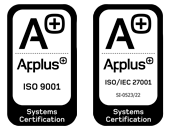Differences between a single-page app vs a multi-page app
The digitalisation of business has led to services becoming more and more user-centric, offering personalised products tailored to users’ needs. Technology has played a fundamental role in this.
Did you know that the businesses that best adapt to the digital era are the most successful and achieve the best results? This is because the integration of technological solutions allows them to adapt to changes more quickly, as well as to obtain real-time data that improves decision-making.
Creating online experiences through different channels and platforms, and trying to be present where users are, is one of the objectives of the incorporation of technologies and the digitisation of services.
In recent years, mobile applications have become increasingly popular tools due to their capacity for personalisation and their continuous presence on users’ devices.
However, not all applications are the same, and the main types (native, web app, and hybrid) are joined by sub-types such as Single-Page Apps and Multi-Page Apps.
Read on to find out the differences between a single-page app vs multi-page app!

The adaptation of businesses to digital transformation involves the use of technology and devices. Find out the top 6 digital transformation trends!
What is a single-page app?
A single-page app (SPA) is one whose content is on a single page and only requires the loading of an HTML file. They are faster and smoother web applications as the code is only loaded once and executed in the user’s browser.
Although these types of tools are translated as single-page applications, it does not mean that there is only one page and it is accessed only once. The content is in a single file and the file is loaded once. This means that users do not identify single-page apps as having only one page, as single-page apps can have multiple views and make users see them as different pages.
In addition, each view can have its own URL, which facilitates navigability and improves the structure and organisation of the content. This does not imply the existence of different pages, but through a single HTML document, the views change according to the user’s interactions.
Single-page applications are characterised by their speed because they are loaded only once. Moreover, even if users switch views, the content is already loaded.
What is a multi-page app?
A multi-page app is a traditional web application that is characterised by the total reloading of the website for each content. A multi-page app is loaded from the server with each user request.
These types of applications have large amounts of data and a large volume of content and tend to be deep websites with complex user interfaces.
A multi-page app requests a new page from the server when the user needs it and then displays it in the browser.
To develop a successful mobile app you need to know some good practices that guarantee the development of a software solution.
Differences between a single-page app vs a multi-page app
As you have seen throughout the post, each type of application has its advantages and disadvantages. It depends on the objective you want to achieve with the development of an app.
On the one hand, multi-page apps facilitate SEO positioning, thus improving the visibility of the web application. In addition, these applications facilitate the incorporation of resources that allow results to be measured and analysed. In addition, it is easy to create scalable solutions that can be adapted to the needs of each project.
On the other hand, single-page apps have shorter loading times, so they are faster as they have less data volume. In this type of application, the user experience is improved as they are more dynamic and flexible applications.
With all these differences between a single-page app vs multi-page app, which one is better? There is no fixed answer to this question because, as you have seen, each type of application has its advantages and disadvantages and therefore, the decision to develop one or the other type will depend on the objectives to be achieved and the required functionalities to be incorporated in the app.
At ABAMobile, we have been developing custom mobile applications for more than 10 years and we create apps adapted to the needs of each project! Contact us and a member of our team will advise you to see which solution is best for your idea.
Get in touch to start your next development project!








